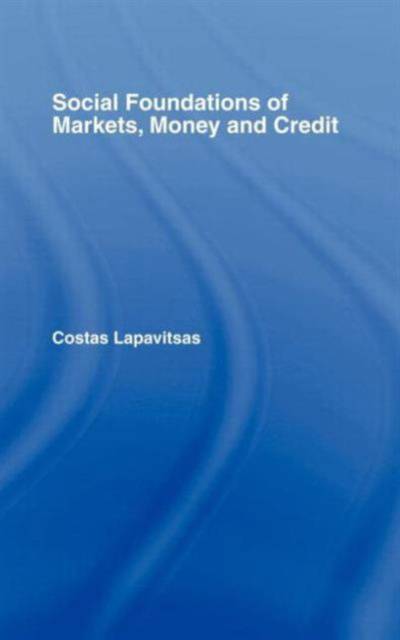
- Retrait gratuit dans votre magasin Club
- 7.000.000 titres dans notre catalogue
- Payer en toute sécurité
- Toujours un magasin près de chez vous
- Retrait gratuit dans votre magasin Club
- 7.000.0000 titres dans notre catalogue
- Payer en toute sécurité
- Toujours un magasin près de chez vous
Description
Where does the power of money come from? Why is trust so important in financial operations? How does the swapping of gifts differ from the exchange of commodities? Where does self-interest stop and communal solidarity start in capitalist economies?
These issues and many more are discussed in a rigorous, yet readable, manner in Social Foundations of Markets, Money and Credit. It is shown in particular that capitalist economies are permeated with non-economic characteristics.
This carefully argued book will prove interesting and valuable to students and researchers not only in economics, but also in sociology and anthropology. Well-informed critics of capitalism will also find it a useful read.
Spécifications
Parties prenantes
- Auteur(s) :
- Editeur:
Contenu
- Nombre de pages :
- 192
- Langue:
- Anglais
- Collection :
Caractéristiques
- EAN:
- 9780415318051
- Date de parution :
- 04-09-03
- Format:
- Livre relié
- Format numérique:
- Genaaid
- Dimensions :
- 156 mm x 234 mm
- Poids :
- 435 g

Les avis
Nous publions uniquement les avis qui respectent les conditions requises. Consultez nos conditions pour les avis.






